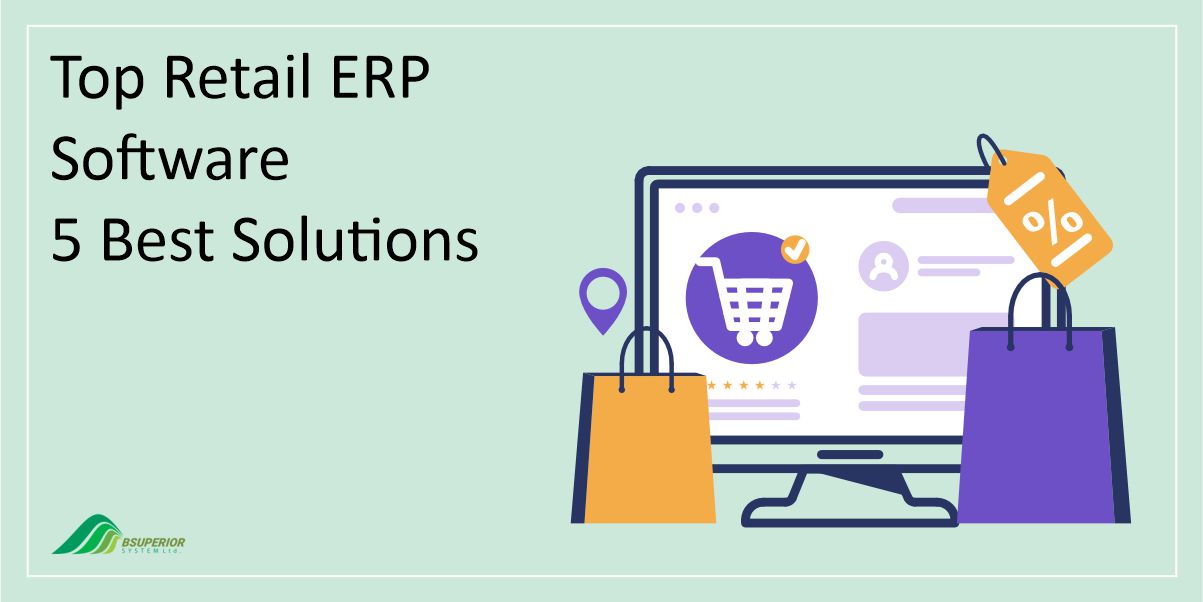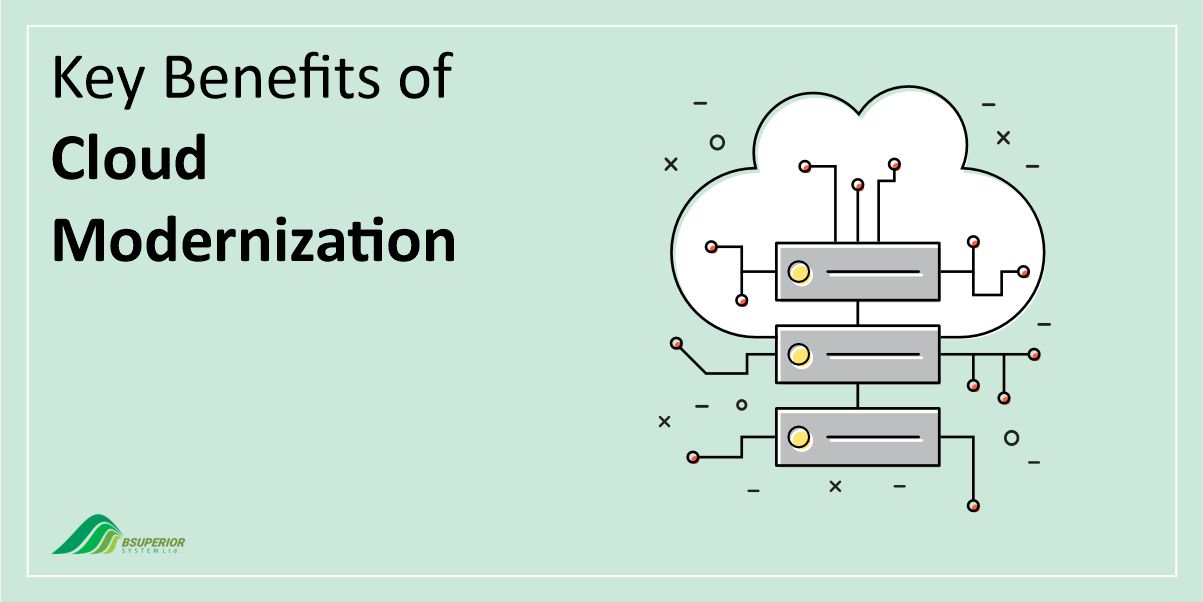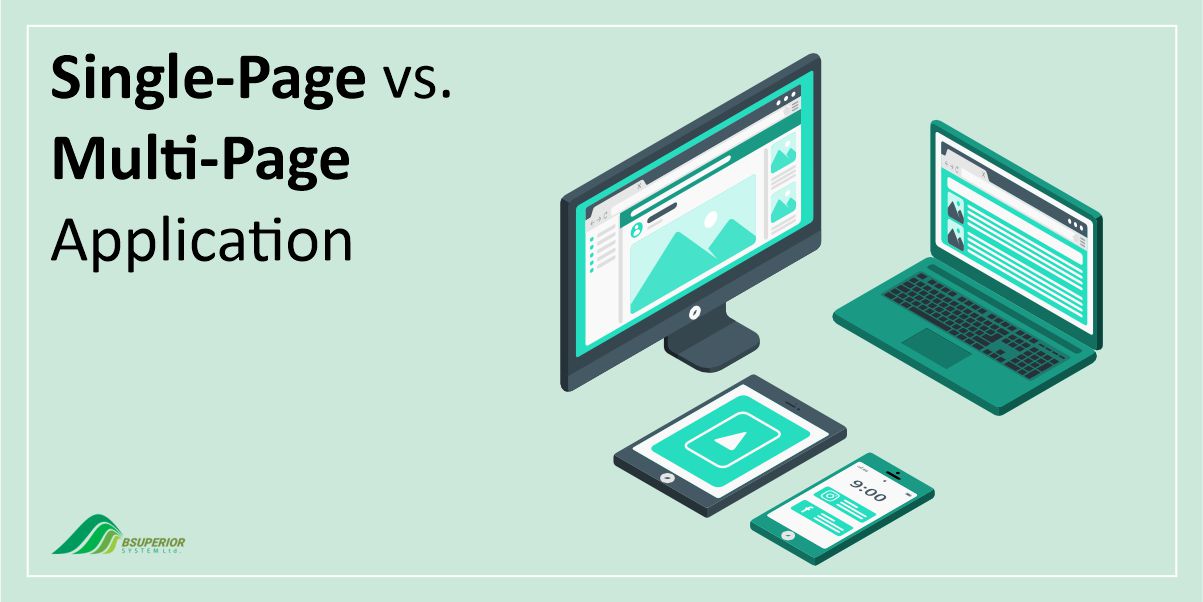6 Top ERPs For the Pharmaceutical Industry [User Reviews]
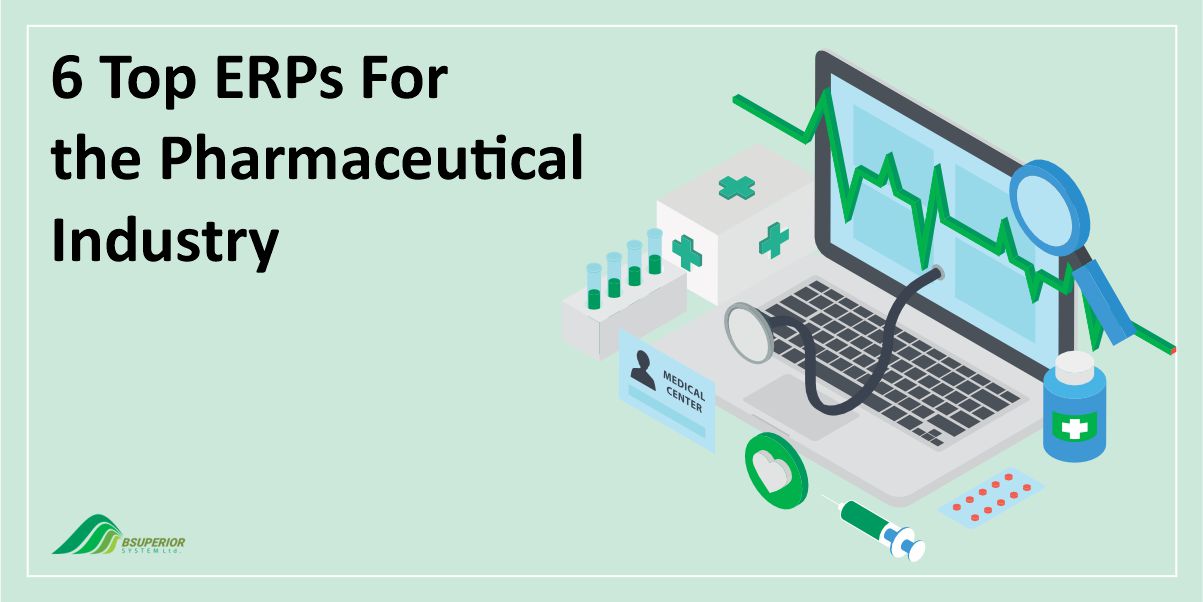
The ever-changing landscape of the pharmaceutical industry, with its increasing complexity, evolving customer demands, and growing data volumes, presents significant challenges for companies.
To address these challenges and remain competitive, pharmaceutical companies are relying on Enterprise Resource Planning (ERP) systems.
In this blog post, we’ll help you find the best solution for your pharmaceutical business by sharing with you some of the best Pharma ERP systems.
What is an ERP System in the Pharmaceutical Industry?
ERP in the pharmaceutical industry, also known as Pharma ERP, is a specialized software designed to automate various tasks across the entire pharmaceutical operation.
Pharma ERP streamlines processes such as production, quality control, and inventory management. Moreover, it tracks important information including product expiration dates, and keeps a close eye on the movement of products throughout manufacturing.
This helps businesses meet strict regulations and produce safe and effective medications efficiently.
Read more: Best ERP Software For the Small Manufacturing Industry [Top 10]
The Benefits of ERP for the Pharmaceutical Industry
ERP systems offer a range of valuable benefits to the pharmaceutical industry. Let’s explore 5 of the key advantages that these systems provide.
Improved Product Costing
One key benefit of ERP systems for the pharmaceutical industry is improved product costing.
Traditionally, factors like vendor costs, supply chain tracking, and raw material management are managed in separate systems, making it difficult to get a holistic view and react quickly to changes.
ERP systems solve this by centralizing data and connecting different operations. This allows for better data capture and real-time updates, enabling companies to accurately determine product costs and make informed decisions based on the latest information.
Regulatory Compliance
Maintaining compliance with complex and ever-evolving regulations is a critical challenge for pharmaceutical companies.
These regulations not only impact brand reputation and consumer trust but also play a crucial role in ensuring patient safety.
ERP systems offer a valuable solution for navigating this complex landscape. The configurable interface, centralized data storage, and automated features of ERP systems allow pharmaceutical companies to effectively:
- Track relevant regulations across different regions.
- Maintain compliance with the latest updates and standards.
- Automate reporting and documentation processes.
By leveraging ERP systems, pharmaceutical companies gain the peace of mind that comes from knowing they are operating in compliance with all applicable regulations.
Enhanced Inventory Management
In order to avoid stockouts and disruptions in their supply chain, it is important for pharmaceutical companies to have an efficient and well-organized inventory.
ERP systems offer a powerful solution for comprehensive inventory management. These tools provide real-time tracking and tracing functionalities, including serialization, which helps:
- Minimize errors and ensure accurate inventory control.
- Reduce waste by optimizing stock levels and preventing overstocking.
- Lower product recall rates with advanced traceability features that track raw materials from origin to finished products.
Scalability and Predictive Capabilities
The pharmaceutical industry faces inherent challenges due to the unpredictable nature of drug production and supply chains. Companies need to understand and manage these challenges to avoid production delays and disruptions.
ERP solutions equip pharmaceutical companies with valuable forecasting and scalability capabilities. These systems enable:
- Effective coordination between various business functions
- Data-driven insights through advanced analytics
- Predictive analysis using historical data and market trends to forecast future demand and optimize production planning.
- Enhanced supply chain visibility through real-time tracking and monitoring
Read more: 6 Top ERPs For the Pharmaceutical Industry [User Reviews]
Secure and Efficient Record Keeping
The pharmaceutical industry operates under strict regulatory guidelines and rigorous record-keeping requirements. This includes maintaining detailed documentation of all procedures and associated data for potential audits and future analysis.
ERP systems come to the rescue by providing robust recordkeeping functionalities. These systems allow for:
- Centralized storage and organization of all pharmaceutical data
- Automated recordkeeping processes to streamline data collection and reduce manual errors
- Compliance with regulatory requirements through adherence to specific data retention and reporting standards
Essential Modules For a Pharmaceutical ERP System
To ensure the efficient and compliant operation of a pharmaceutical company, a robust ERP system is crucial. These are the key modules that a pharmaceutical ERP system must possess:
1. Quality Control
As the cornerstone of the pharmaceutical industry, quality control is paramount. This module safeguards the integrity and effectiveness of products by managing quality checks, inspections, and documentation throughout the manufacturing lifecycle.
2. Batch Control and Traceability
This module is in charge of tracking the production journey of each batch of medication. It assigns batch numbers, monitors production stages, and facilitates efficient dispatch and delivery.
Furthermore, it maintains comprehensive records that allow for detailed tracing of any batch to ensure complete transparency and accountability throughout the supply chain.
3. Production Scheduling
The production scheduling module in a Pharma ERP enables you to automate the planning and execution of tasks on your production line.
This automation unlocks significant efficiency gains that will potentially lead to increased output and a smoother production process.
4. Production Management
By interacting with other modules, the production management module gathers data and information from various departments to optimize resource utilization.
By analyzing equipment usage and resource allocation, this module helps to identify areas for improvement and reduce production costs.
Read more: Best Food and Beverage ERP Solutions in 2024
5. Warehouse Management
Maintaining accurate stock information and efficient warehouse management are essential for effective inventory control. That is what a warehouse management module can do.
It monitors all stock-related data, including the placement of batches within specific warehouses. It also maintains comprehensive records of all warehouses and their inventory levels that will help facilitate smooth logistics operations.
Top Pharma ERP Systems
In what follows, we’ll introduce you to 6 of the best ERP systems that pharmaceutical companies can employ. These ERP solutions are:
- SAP S/4 HANA
- Oracle Cloud ERP
- SYSPRO
- SAP Business ByDesign
- Infor CloudSuite Industrial
- Microsoft Dynamics 365 Business Central
1. SAP S/4 HANA
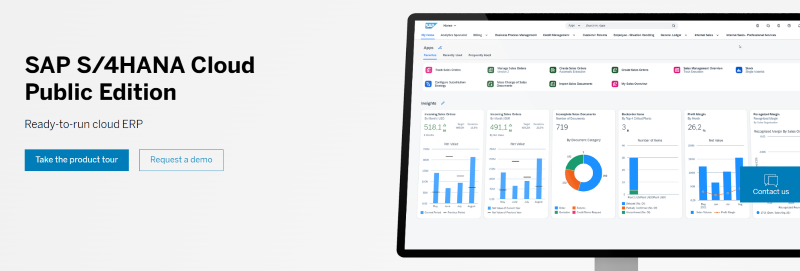
SAP S/4HANA is widely considered the go-to ERP system for the pharmaceutical industry.
These solutions cater to the comprehensive needs of large and growing pharmaceutical companies, offering functionalities in finance, procurement, quality control, manufacturing, and product traceability.
One key advantage of SAP is its ability to handle various global pharmaceutical business models within a single database.
However, it might lack in-depth capabilities for specific, highly specialized tasks, often relying on additional solutions from independent software vendors (ISVs) to fulfill these needs.
While this reliance on additional software can be costly for smaller pharmaceutical companies, it aligns with the best-of-breed approach preferred by larger ones.
Pros
- Offers robust financial controls and compliance support.
- Supports various business models across the pharmaceutical industry, from drug manufacturers to medical device companies.
- Integrates seamlessly with other industry-leading applications for functionalities like warehouse management and e-commerce.
Cons
- It has limited Drug Supply Chain Security Act (DSCSA) compliance features.
- The extensive financial control features in S/4 HANA, while valuable for large organizations, can be cumbersome and unnecessary for smaller companies.
Pricing
The cost of SAP S/4 HANA depends on several factors. These include:
- Number of Users: The more users who need access to the system, the higher the cost.
- Features: Adding advanced functionalities increases the overall price.
- Support Level: Choosing a higher support tier typically comes with a higher cost.
- Additional Software: Integrating third-party applications or additional modules incurs extra fees.
S/4 HANA is usually offered as a cloud-based solution. This means you pay an annual subscription fee that covers the software license, hosting, and support services.
All this means that you need to reach out to SAP directly through their sales channels to obtain a specific quote based on your company’s individual needs and configuration requirements.
Rating

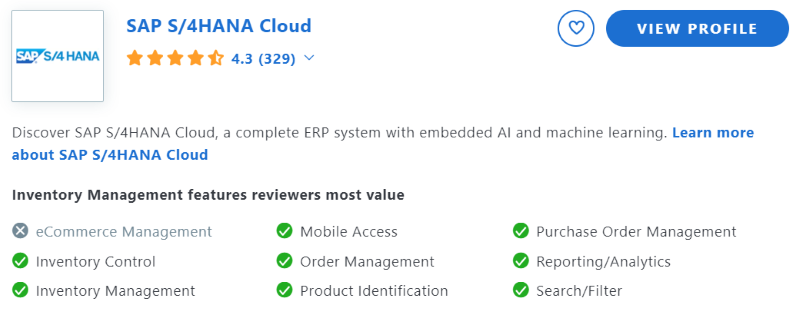
- G2: 4.5
- Capterra: 4.3
2. Oracle Cloud ERP
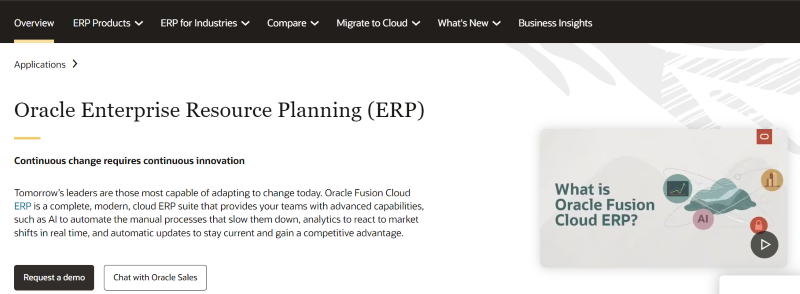
Oracle Cloud ERP is gaining traction as an attractive option for pharmaceutical companies seeking a comprehensive ERP solution.
It offers a unified platform that streamlines financial and operational functions, while also encompassing Human Capital Management (HCM) and other functionalities.
Pros
- Oracle Cloud ERP offers robust core functionalities such as international trade management and supply chain planning.
- As one of the most widely adopted ERP solutions, Oracle ERP benefits from a large community of consultants specializing in building custom functionalities for the pharmaceutical industry.
- It has a rich product model and can natively support various distribution and manufacturing processes.
Cons
- Oracle Cloud ERP requires additional add-ons or custom development to fully comply with DSCSA regulations.
- The extensive financial control features designed for larger companies might be overwhelming for smaller businesses.
Pricing
Oracle Cloud ERP uses a subscription-based pricing model, typically requiring a 3-5 year commitment. The cost is calculated per user, with a minimum number of users required for purchase.
The contract duration also impacts the total cost. Additionally, separate charges may apply for add-on services not included in the base pricing.
Rating

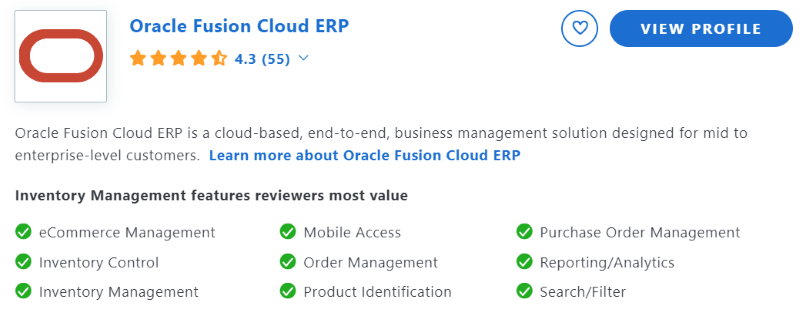
- G2: 4.1
- Capterra: 4.3
3. SYSPRO
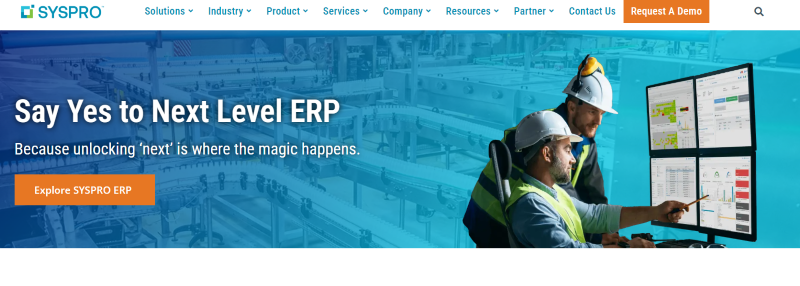
SYSPRO is a good fit for smaller pharmaceutical companies due to its ability to handle both discrete and process manufacturing.
It offers a comprehensive suite of functionalities including quality control, purchasing, and inventory management all within a single, integrated system designed specifically for the pharmaceutical industry.
However, it might not be the best choice for large, multinational pharmaceutical companies with complex structures and operations across various countries.
Read more: ERP Data Migration: The Essentials You Need to Know
Pros
- SYSPRO has built-in formulation management capabilities.
- It supports various business models, including drug manufacturers, distributors, repackagers, and even laboratories that produce both drugs and devices.
- Compared to other options targeted at smaller companies, SYSPRO offers more comprehensive capabilities in supply chain and finance management.
Cons
- SYSPRO is not suitable for larger pharmaceutical companies with complex structures, multiple entities, and global operations.
- SYSPRO might not have the same level of maturity as other leading vendors on the market.
Pricing
SYSPRO offers two main licensing options:
- Perpetual License: This involves a one-time fee to purchase the software outright. The cost varies based on the number of users and the modules you choose.
For SYSPRO, the price per concurrent user typically falls within the range of $3,000 to $5,000. - Subscription License: Alternatively, SYSPRO provides a subscription-based model where you pay a recurring fee – usually monthly or annually. This fee typically ranges from $150 to $250 per user per month.
Rating

SYSPRO has a rating of 4.1 on the G2 platform.
4. SAP Business ByDesign
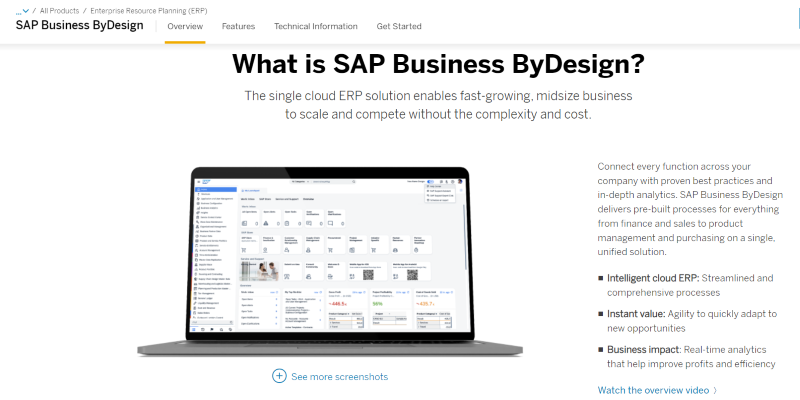
SAP Business ByDesign, a cloud-based ERP solution, has become popular in the pharmaceutical industry.
It attracts growing companies with its comprehensive functionalities, including integrated modules for sales, production, inventory, quality control, and functionalities crucial for the pharmaceutical industry, such as serialization and batch traceability.
This streamlined approach not only simplifies operations but also makes it easier for pharmaceutical companies to comply with industry regulations related to batch tracking and product recalls.
Pros
- ByDesign offers a wide range of functionalities across various business areas, including sales, production, inventory, and quality control.
- ByDesign has strong capabilities for professional services and discrete manufacturing, making it relevant to the specific needs of the pharmaceutical industry.
- ByDesign offers a true cloud experience.
Cons
- ByDesign prioritizes pre-configured functionalities over extensive customization options.
- ByDesign offers fewer pre-built integrations with other solutions within the broader SAP portfolio.
Pricing
SAP Business ByDesign offers tiered pricing based on user types and functionalities:
- Self-Service User: $21 per user/month – Provides basic access to view data and reports.
- Core User: $117 per user/month – Manages essential tasks in areas like sales, finance, and HR.
- Advanced User: $212 per user/month – Utilizes the full range of functionalities in ByDesign.
- Base Package: $1,775 per user/month (per entitlement package/month) – Grants access to all components of the public edition, suitable for comprehensive cloud ERP needs.
Rating

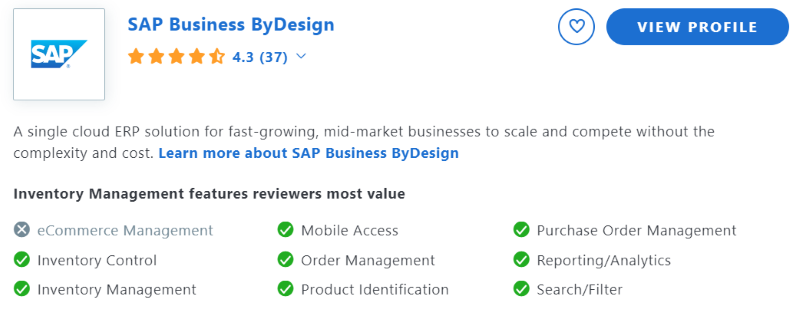
- G2: 4
- Capterra: 4.3
5. Infor CloudSuite Industrial
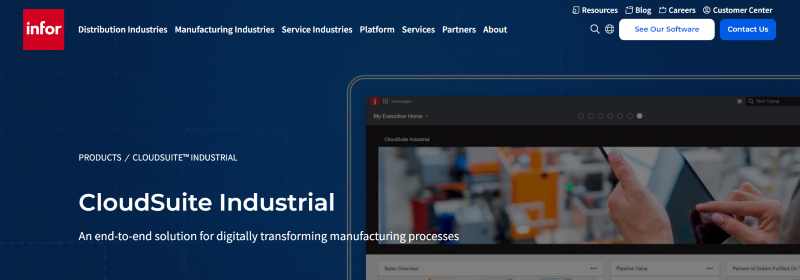
Infor CloudSuite Industrial ERP (Infor CSI) is a modern ERP solution specifically designed for the needs of small and medium-sized pharmaceutical companies.
It combines cutting-edge technology with industry-specific features to ensure compliance and seamless integration across all aspects of your operations.
Furthermore, Infor CSI offers cost-effective solutions with deep functionalities tailored to the pharmaceutical industry, making it a strong fit for companies seeking a flexible and efficient ERP system.
Pros
- Infor CloudSuite offers multi-site and multi-company support.
- The built-in business intelligence capabilities allow users to analyze data and gain valuable insights into operations.
- Infor CloudSuite has comprehensive supply chain management functionalities.
Cons
- The QMS module is not as comprehensive as some competitors in the pharmaceutical industry.
- Upgrading the system can be complex and time-consuming.
- New users may face a steeper learning curve due to the system’s complexity
Pricing
Infor CloudSuite Industrial’s pricing is not publicly available and depends on various factors such as the number of users, deployment model, and customization.
Rating

Infor CloudSuite is rated 3.9 by users on the G2 website.
6. Microsoft Dynamics 365 Business Central
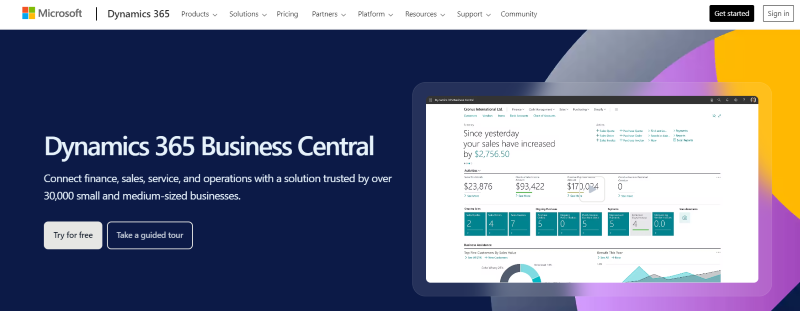
Microsoft Dynamics 365 Business Central has carved a niche in the pharmaceutical industry. It has established a network of specialized partners to enhance its offerings for this sector.
While Dynamics 365 shines in supply chain and distribution management, its strength lies in its flexibility. This allows businesses to build custom functionalities to address specific last-mile requirements.
However, its lack of formulation management capabilities makes it unsuitable for larger pharmaceutical companies or those involved in process manufacturing.
Pros
- Dynamics 365 Business Central offers numerous add-ons developed by reputable companies.
- The system has a rich data model with built-in support for multiple lots and serial numbers.
- The system provides comprehensive supply chain and inventory management.
Cons
- Dynamics 365 does not offer built-in support for formulation management, which is a critical limitation for pharmaceutical companies.
- Dynamics 365 has limitations in manufacturing capabilities.
Pricing
Microsoft Dynamics 365 Business Central offers tiered pricing based on user licenses:
- Essentials: $70 per user/month – Provides core functionalities for managing basic business operations.
- Premium: $100 per user/month – Offers additional features and functionalities.
- Team Members: Starting from $8 per user/month – Grants limited access to specific functionalities within Dynamics 365 Business Central, ideal for occasional or non-core users.
Rating

Microsoft Dynamics has received a rating of 3.8 on G2.
Final Words: How Can BSUPERIOR Help?
BSUPERIOR, a leading custom ERP development company, provides businesses across diverse industries with tailor-made solutions. Our expertise lies in optimizing your operations, streamlining processes, and accelerating growth through innovative ERP software.
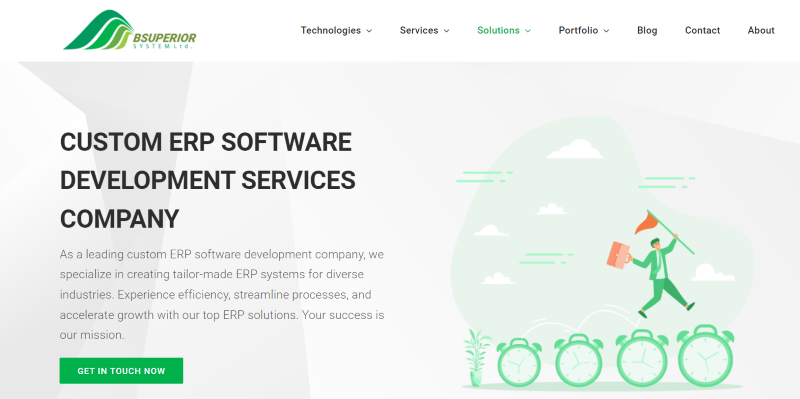
For pharmaceutical manufacturers, BSUPERIOR offers a comprehensive ERP system designed to seamlessly integrate critical functionalities such as accounting, inventory management, and employee management.
Built with scalability and adaptability in mind, our system grows alongside your business. We offer customization options to perfectly fit your unique needs and ensure a future-proof solution that can adapt to evolving industry demands.
So, if you’re ready to tap into the potential of a modern and future-oriented ERP solution, contact us today.
We value your input and believe this content may enhance our services. However, it's under review. If you see room for improvement, please use the "Report an issue" button below. Your feedback helps us excel.
Contact us today at –– and speak with our specialist.

